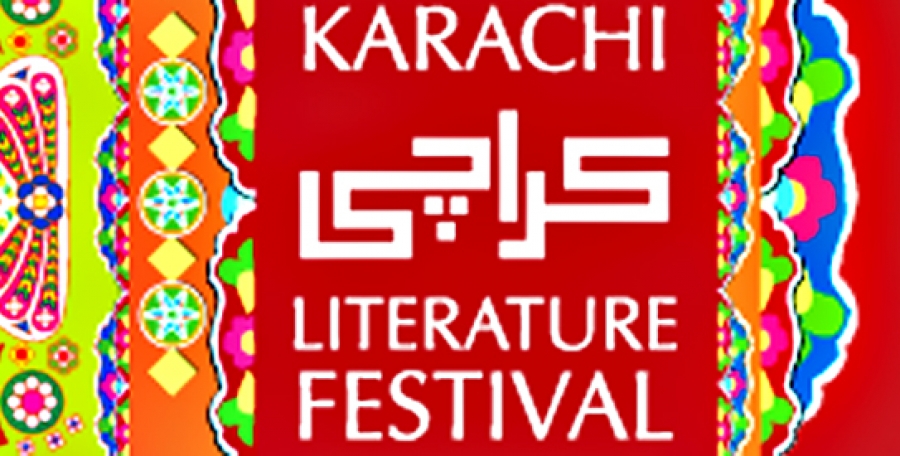Some of the proposed topics of discussion at the Karachi Literature Festival which took place earlier this month caught my attention as I read about it in the press. In particular the panel discussion on ‘Secularism in Pakistan’ moderated by Irfan Hussain and featuring Hamid Khan, Javed Jabbar, Asma Jahangir, and Nasira Ibqal. I made an effort to attend to see what the latest arguments of leading advocates for secularism in Pakistan were, only to be met, I must confess, with profound disappointment.
The arguments lacked depth, failed to deal with the substantive issues and were little more than old Western arguments renovated for the Pakistani context.
The whole affair was rather lacklustre.
Firstly, it was rather odd that the panel was stacked with people all arguing for the same thing. Having both sides of the argument present on the panel would have been much more intellectually honest and rigorous. With such a setup – and things like an office-bearer of the Forum for Secular Pakistan being randomly given time before the end of the session to simply read out the objectives resolutions of the group – the forum came across as a political exercise rather than an intellectual one.
Secondly, one must ask what relevance the topic of secularism in Pakistan has in a literature festival. What does a group of predominantly legal professionals arguing for secularism have to do with literature? The conclusion that this was simply an exercise in propagating ideological positions beyond the cover of fine arts – a classical colonialist approach – is difficult to avoid.
Whatever the reality, the panellists did not do a very good job of arguing for their position.
Their basic argument, kicked off by Nasira Iqbal, was that the founders of Pakistan were secular and intended a secular state. The people of Pakistan were also largely secular but had been fed the wrong definition of ‘secularism’ as ‘la dinniyat’. This explained the survey after survey, cited by moderator Irfan Hussain, showing that the people of Pakistan were not in favour of secularism.
Asma Jahangir emphasised that there were different models of secularism: the Turkish model, the French model, the American model, and that Pakistan needed to choose what was most appropriate for itself. Which one was that? She didn’t know, but, “I do know that I am against having a theocracy.”
Javed Jabbar spent time explaining the “ambivalent and ambiguous” approach used by Muhammad Ali Jinnah on the question of Islam and secularism in founding Pakistan, arguing that due to this ambiguity remains on the topic in Pakistan till now. The ambivalence he spoke of was the various positions on the nature of the state expressed by Jinnah, sometimes speaking of secularism whilst others times saying that the Islamic sharia would be the basis of the state.
In sum, the panel sung from the same hymn sheet, arguing that Pakistan must be secular, such that there is a clear separation of religion from state but people are allowed to practice whatever beliefs they chose. They all argued against what they characterised as the alternative, a ‘theocratic’ state.
In doing so they failed to address the substantive issues. This is typical of the approach adopted by advocates of secularism in Pakistan: an approach facing a number of key problems, four of which I highlight in what follows.
First, failure to substantiate.
Anyone advocating one position over another must rationally substantiate that position. Yet the panellists merely presumed that secularism was the right way, such that all there was to discuss was why the people of Pakistan were not in favour of it, which model should be adopted, and what the intentions of the founders were.
They failed to substantiate why secularism should be adopted in the first place. Why should church be separate from state? Why should religion be singled out for exclusion from influencing public affairs? Religion is after all one type of worldview from amongst many.
One argument forwarded – by Yasser Hamdani recently, for instance – is that “given there are many different religions and interpretation of those religions, the best way is keep religion out of politics and the state.” If this is a sound argument, it should apply to everything else, not just religion. Why should religion be singled out? Science, arts, law, non-religious ideologies such as liberalism and socialism all have various schools of thought and interpretations. Should they, therefore, be excluded from politics and the state?
It is then suggested that religion is singled out because it is the cause of the violence and disturbance in society. This is quite evidently a subjective argument, for there are various opinions on the question of what the causes for the troubles in Pakistan are. Corruption and ineptitude in the establishment and interference by powerful foreign states are much more likely candidates as explanations of the state Pakistan find itself in rather than the mere existence of religious difference.
The reality is that there is no strictly rational argument for secularism. It is rather the product of a compromise solution for a geographically, historically, and contextually specific problem: that of pre-Enlightenment Europe. The centuries-old oppression of the Church was sought to be repelled by the separation of religion from state. But to generalise this solution for all times and places represents a logical flaw of jumping from a particular case to a universal conclusion.
An analogous case would be our arguing that because George Bush’s capitalist, liberal regime in America was oppressive, capitalism and liberalism should have no influence in society. This is clearly an irrational argument.
This is so all the more given that at the very time that Europe was languishing in the ‘Dark Ages’ due in part to religious oppression, Muslims were flourishing on all fronts under the Caliphate (khilafat), particularly from the 7th to 12th century (the ‘Golden Age’) notwithstanding there being no separation between religion and state.
Devoid of a rational argument for secularism advocates resort to a rather romanticised view of it as a neutral system which allows for a pluralist society where everyone is free to practice their individual beliefs. Yet secularism is built on a specific worldview and is no more neutral than any other ideology. It disallows those parts of other worldviews which contradict with it, just as they would.
For example, Muslims living the Western states are not allowed to practice certain aspects of Islam, such as polygyny, inheritance laws and the like. Whatever anyone may think of these laws is beyond the point, which is that that they are prohibited by force of the law and thus secularism entails imposition.
So if secularism neither has a rational argument from first principles to substantiate it, nor is a neutral position, why should it be adopted?
Second, failure to address the contradictions entailed by the argument.
The fundamental argument of secularism, that religion should be excluded from influence in public affairs, entails a clear contradiction. This is because either God exists or not. If He does not exist, then religion should be rejected altogether, not simply excluded from public life. But if He does exist, as all Muslims affirm, then ration dictates humans beings running all their affairs by the guidance of revelation from God, given He is all-knowing and all-wise. To substitute the all-encompassing knowledge and wisdom of God for the limited and fallible knowledge and experience of humans is irrational. To do so specifically in affairs of politics and state, those affairs that are most influential in society, makes even less sense.
Third, failure to address the particular cases that belie the claim.
If secularism is necessary for society to progress, how is Islamic history to be explained? How is the historical record of the Caliphate (khilafat) mentioned above to be explained? In fact, why should Muslims not look to their own history and learn form that instead of borrowing from the history of Europe?
Fourth, failure to address the problems that ensue from the adoption of secularism.
We see that in almost all Western states which are secular there is an accompanying social and moral degradation. So why would Pakistan taking the path of secularism be any different?
These are the questions and issues that need to be addressed by advocates of secularism.
Perhaps this is why the people of Pakistan reject secularism, because they understand these issues and know that it is an irrational idea which contradicts the values and beliefs they hold as Muslims.
As for the claim that the people of Pakistan reject secularism because they don’t understand what it is, this is a case of the shoe being on the other foot. In fact, advocates of secularism do not understand Islam. This is apparent in their characterisation of the Islamic state as a ‘theocracy’.
Theocracy is a Western-Christian concept wherein the political authority (the king) rules by divine right and the religious authority (the pope) is infallible and in direct contact with God. In turn, neither authority is accountable. In sharp contrast, in the Caliphate (khilafat) model of Islam the people chose the head of state (caliph), who is considered a (fallible) human being, capable of error and deviation, thus held to account by the people.
Secularists in Pakistan need to pull up their socks if they seek to find traction for secularism amongst people. Thus far, their efforts only expose the failings of secularism, which shine through with greater clarity than any of the arguments of its advocates.
Uthman Badar
![]()















